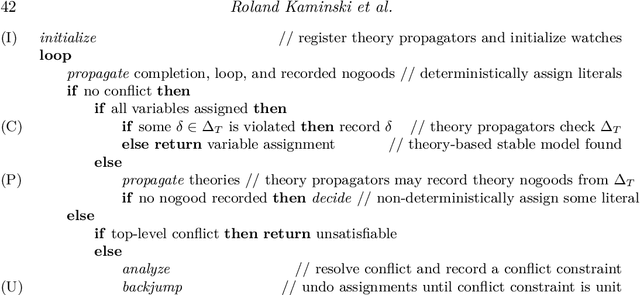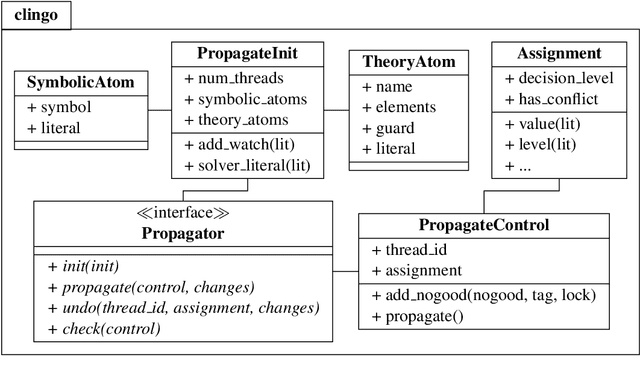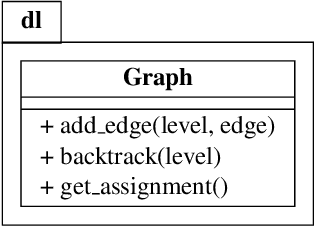How to build your own ASP-based system?!
Paper and Code
Aug 15, 2020



Answer Set Programming (ASP) has become a popular and quite sophisticated approach to declarative problem solving. This is arguably due to its attractive modeling-grounding-solving workflow that provides an easy approach to problem solving, even for laypersons outside computer science. Unlike this, the high degree of sophistication of the underlying technology makes it increasingly hard for ASP experts to put ideas into practice. For addressing this issue, this tutorial aims at enabling users to build their own ASP-based systems. More precisely, we show how the ASP system CLINGO can be used for extending ASP and for implementing customized special-purpose systems. To this end, we propose two alternatives. We begin with a traditional AI technique and show how meta programming can be used for extending ASP. This is a rather light approach that relies on CLINGO's reification feature to use ASP itself for expressing new functionalities. Unlike this, the major part of this tutorial uses traditional programming (in PYTHON) for manipulating CLINGO via its application programming interface. This approach allows for changing and controlling the entire model-ground-solve workflow of ASP. Central to this is CLINGO's new Application class that allows us to draw on CLINGO's infrastructure by customizing processes similar to the one in CLINGO. For instance, we may engage manipulations to programs' abstract syntax trees, control various forms of multi-shot solving, and set up theory propagators for foreign inferences. Another cross-sectional structure, spanning meta as well as application programming, is CLINGO's intermediate format, ASPIF, that specifies the interface among the underlying grounder and solver. We illustrate the aforementioned concepts and techniques throughout this tutorial by means of examples and several non-trivial case-studies.
 Add to Chrome
Add to Chrome Add to Firefox
Add to Firefox Add to Edge
Add to Edge